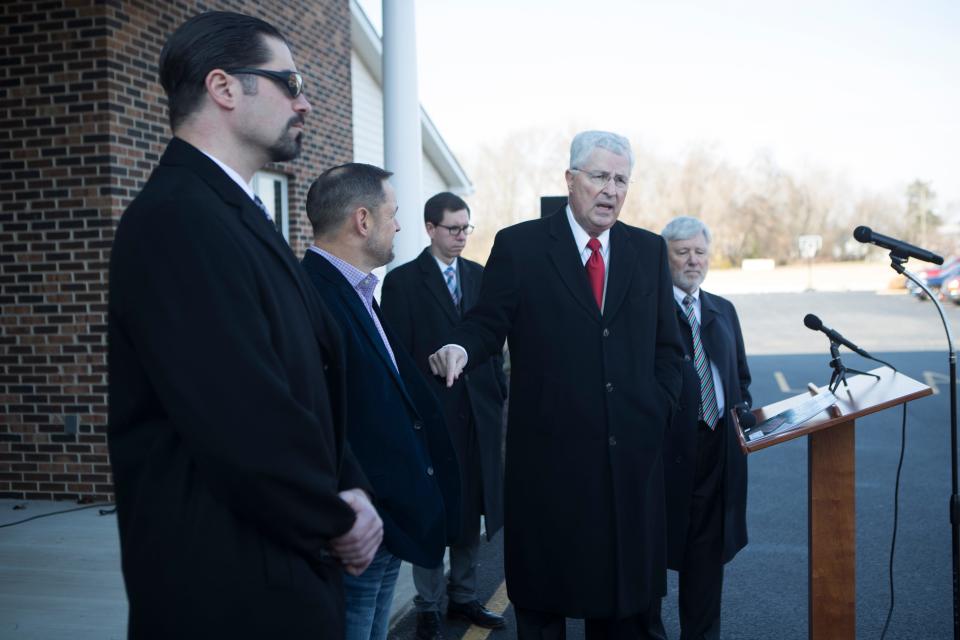Why a Delaware judge dismissed a lawsuit challenging future COVID-19 restrictions
Attorneys for two pastors who filed a lawsuit asking Chancery Court to prevent Delaware's governor from imposing future restrictions on religious worship are meeting to see what their next step will be after a judge dismissed the case last week.
The Rev. Alan Hines, of Townsend Free Will Baptist Church in Townsend, and the Rev. David Landow, of Emmanuel Orthodox Presbyterian Church in Wilmington, filed lawsuits late last year seeking an injunction against future emergency orders that place restrictions on houses of worship such as those imposed by Gov. John Carney in 2020 as the COVID-19 pandemic spread.
The pastors' lawsuits claimed Carney's emergency orders early in the pandemic denied them their "absolute religious freedoms."
Through their lawsuits, they are asking Carney and future Delaware governors to keep their "hands off" the church in any future emergencies, regardless of any pretense they may offer.
Background:Lawsuits ask that governors' emergency orders keep their 'hands off' houses of worship
But Vice Chancellor J. Travis Laster dismissed the lawsuit because he said it lacked subject matter jurisdiction — the requirement needed for a court to hear a specific kind of claim.
"Courts of equity are rightly reluctant to allow a plaintiff to establish jurisdiction by tacking on a request for a permanent injunction to a suit that a court of law otherwise could hear," Laster said in his 52-page opinion. "That reluctance is particularly warranted when the defendant is not currently engaging in the act that the plaintiff seeks to enjoin. The level of reluctance increases when, as here, the risk that the defendant will act is not so great as to warrant an application for interim relief."
The request to dismiss was made by attorneys representing Carney, whose office said it would not be commenting on the matter.
The pastors' attorneys were scheduled to meet Friday to decide whether to appeal the matter in Supreme Court or move the case to Superior Court.
"I'm disappointed where we are right now, but we're not given up," said Thomas S. Neuberger, one of the attorneys involved in the lawsuit.

While Carney declared churches essential in his emergency orders, he imposed restrictions beyond what he required other essential businesses to follow, according to the lawsuits. This included:
Prohibiting in-person Sunday religious services.
Preventing indoor preaching.
Banning singing.
Barring the elderly from church.
Prohibiting baptism.
Prohibiting the Lord’s Supper.
Favoring one religion over another.
Hines and Landow's lawsuit came after the Rev. Christopher Bullock, a New Castle-area pastor, filed a federal lawsuit in an effort to fully reopen Delaware's places of worship.
The lawsuit was settled in November 2020. This agreement classified houses of worship as essential in any future emergency order and would not single those places out if further restrictions are implemented while COVID-19 cases spike in Delaware and around the country.
In exchange for Bullock dropping his lawsuit, Carney agreed that in any future emergency requiring state actions, the governor "must treat churches and religious worship in a neutral manner."
Federal lawsuit settled:Gov. Carney settles federal case over restrictions impacting places of worship in pandemic
Contact Esteban Parra at (302) 324-2299, eparra@delawareonline.com or Twitter @eparra3.
This article originally appeared on Delaware News Journal: Delaware lawsuit challenging future religious COVID limits dismissed


